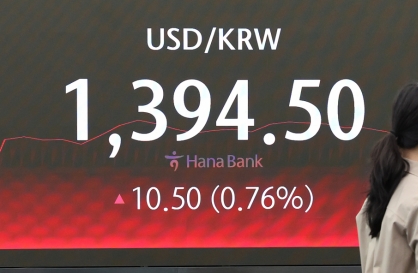Korea’s de facto jobless up 860,000 in 2020
Deck: In July, unemployed plus underemployed top 4 million
[News Focus]
By Kim Yon-se
SEJONG -- South Korea saw the number of unemployed on an “extended” basis, which includes the underemployed, hover over 4 million for the fifth consecutive month. These are regarded as the “de facto” or “comprehensive” jobless.
According to the Supplementary Index III for Employment, held by Statistics Korea, the tally for “the employed plus the underemployed” was 4.15 million of the economically active population -- 30.13 million -- as of July.
This marked a sharp increase compared to 3.29 million at the end of 2019, which is indicating an increase of 860,000 people -- who were in out of work or had an unstable job position -- for the first seven months of 2020.
The Index III provides a relatively new method of calculating unemployment, counting underemployed people among the de facto unemployed. This category includes those who work fewer than 36 hours a week and want to work more, as well as seasonal workers who are out of work for part of the year.
Data for this year suggests that the nation’s hiring market has yet to be normalized after being hit by the novel coronavirus.
After staying at 3.58 million in January and 3.65 million in February, the tally for the extended-based jobless stayed over the 4 million mark for five months in a row, from March to July.
The extended unemployment rate recorded 14.3 percent on the average during the five-month period. This indicates that 1 out of every 7 South Koreans have been de facto out of work.
A hopeful point is that the figure has been inching down after peaking at 4.42 million in April (from 4.27 million in March) -- it reached 4.36 million in May, 4.18 million in June and 4.15 million in July.
Nevertheless, a worrisome point is that uncertainty is stilling lingering over the tourism, airlines, restaurants, lodging and private education sectors, which have resorted to layoffs or hiring freezes. Workers for these industries have been hit hardest by COVID-19.
Another case for alarm is the record-breaking data on unemployment benefits each month. In July, the government’s monthly payouts of unemployment benefits reached an all-time high of 1.18 trillion won ($996.5 million), after surpassing the 1 trillion won mark for the first time in history.
The situation is intensifying concerns over the government’s capacity to continue paying benefits at such high levels. Payments had already seen a sharp increase even before the pandemic started, due to increases in the minimum wage and mass closures of small businesses under the Moon Jae-in administration.
According to the Korea Employment Information Service, unemployment benefits have continued to increase sharply on-year over the past three years -- from 5 trillion won in 2017 to 6.43 trillion won in 2018, and to an all-time high of 8.07 trillion won in 2019.
The 2019 figure marked a 72.8 percent surge compared with 2016 under the previous administration, when it was 4.67 trillion won.
Compared with five years earlier, in 2014, when benefits paid out amounted to 3.96 trillion won, the 2019 levels constituted a 103.7 percent increase.
Meanwhile, the Index III shows more tough job market for the young generation. The number of unemployed plus underemployed for those aged 15-29 came to 1.25 million out of the economically active population, 4.91 million, with the de facto jobless rate reaching 25.6 percent.
This means 1 of 4 young Koreans is de facto unemployed. The extended jobless rate for Koreans aged 15-29 hovered over the 25 percent mark for the fifth consecutive month, starting from March.
(
kys@heraldcorp.com)
Caption: Applicants for unemployment benefits take an elevator to take a briefing session on another floor at a regional unit of the Ministry of Employment and Labor in Seoul earlier this month. The class is a required process for applicants before enjoying the government’s payouts. (Yonhap)







